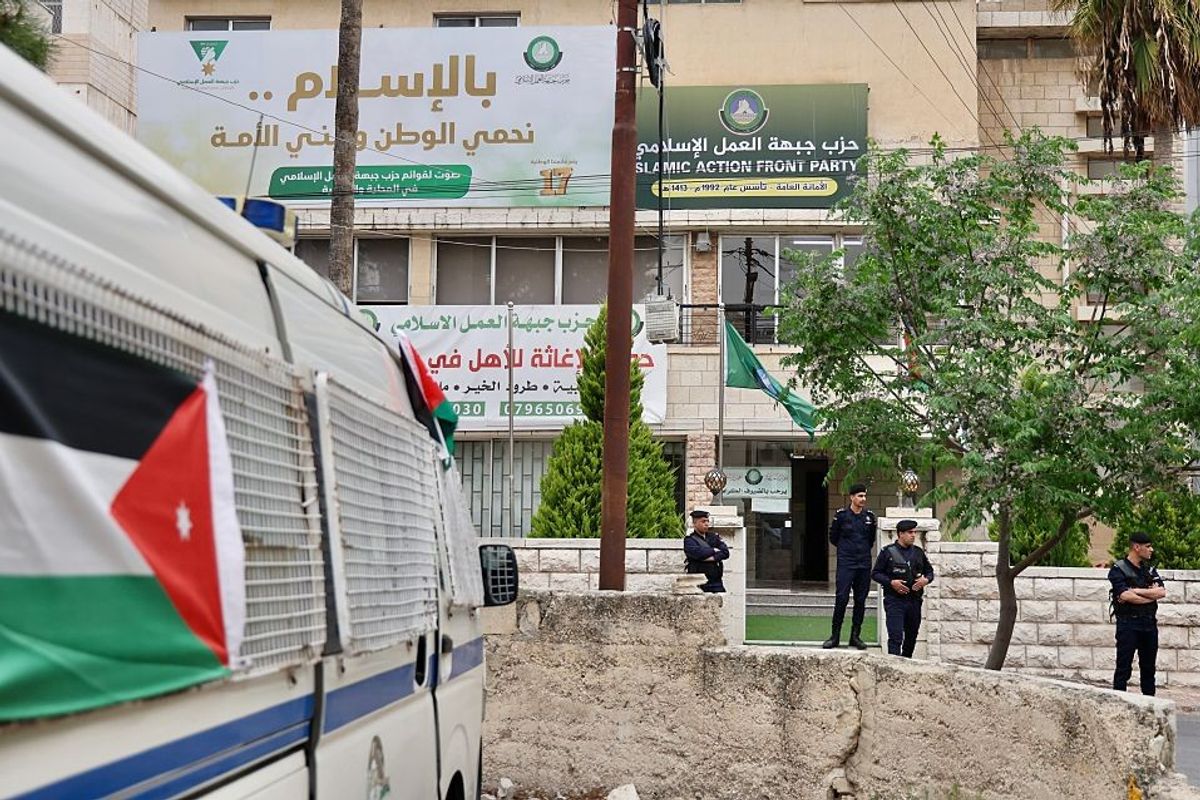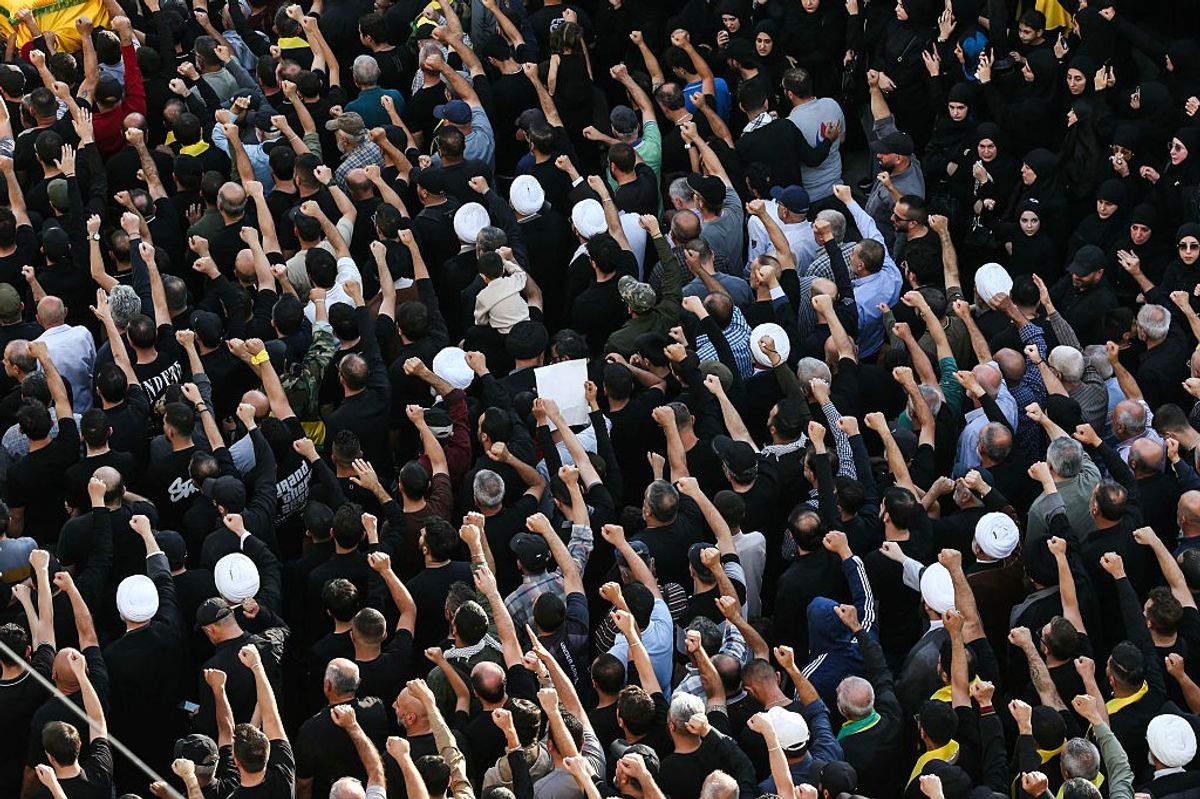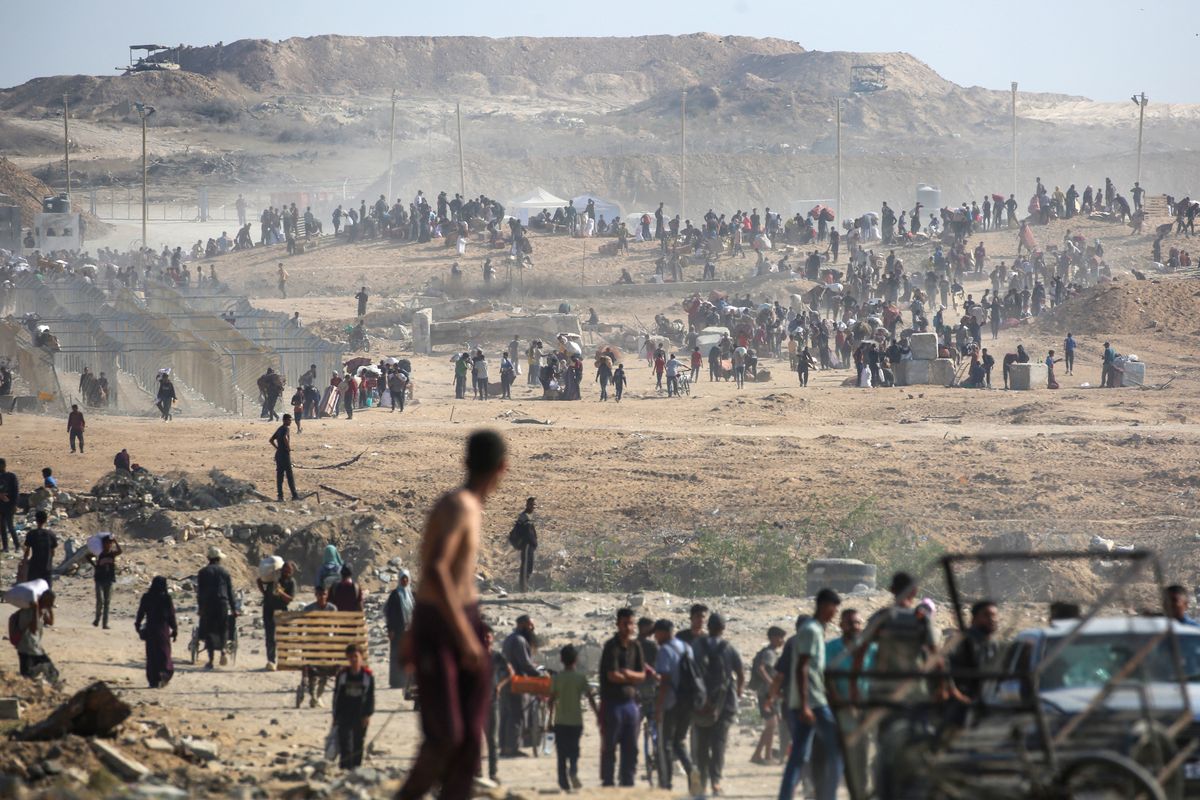EXPERT INTERVIEW — Even by the standards of Mideast intrigue and covert operations, what happened Tuesday afternoon in Lebanon was startling: for roughly an hour, beginning at 3:45 pm local time, hundreds of paging devices exploded, killing at least 9 people and wounding more than 2700 others.
The coordinated attack targeted members of the Iran-backed militant group Hezbollah, and bore the hallmarks of an Israeli operation. Hezbollah said Israel was “fully responsible” and would receive “its fair punishment” for the blasts. And as has been the case with recent attacks in Iran and Lebanon, Israel neither claimed nor denied responsibility.
Witnesses in Lebanon reported smoke coming from people’s pockets in mid-afternoon, followed by sounds that some thought were fireworks, or gunshots. Lebanon’s Ministry of Health said a young girl was among those killed, and Iranian state media said Iran’s ambassador to Lebanon, Mojtaba Amini, suffered injuries to his hand and face. Another 14 people were injured by similar blasts in Syria.
The Associated Press reported that Hezbollah had recently acquired the pagers after a directive from the group’s leader, Hassan Nasrallah, to avoid using cell phones given the ease with which they could be tracked by Israeli intelligence.
The mass pager attack came on the day that Israel formally added Hezbollah to its war declaration: the cabinet agreed that halting Hezbollah’s attacks on northern Israel was now part of the mission, in addition to the previously-stated goals of destroying Hamas and bringing the hostages home from Gaza. The attacks also came on the day after senior U.S. negotiator Amos Hochstein visited Israel in his latest effort to avoid a full-scale Israeli war with Hezbollah – a mission that ended as others have, with no commitment from Netanyahu to hold fire.
Axios reported that Israel saw Tuesday’s operation as a way to strike Hezbollah without escalating to all-out war, but Lebanon’s foreign minister, Abdallah Bou Habib, warned that such a war may be imminent. He said his country was bracing for a major retaliation by Hezbollah against Israel and then the inevitable counterstrikes, saying the pager attack “escalates this war.”
As the day drew to a close, the mass explosions had raised several questions: were these attacks Israel’s way of hurting Hezbollah without launching a major military operation? Or were they only the first salvo of a full-on war? And whoever carried out the operation, how was it done?
Cipher Brief Managing Editor Tom Nagorski put these and other questions to Norman Roule, a Cipher Brief expert and three-decade veteran of the Central Intelligence Agency, who served as the the National Intelligence Manager for Iran at the ODNI.
Among other things, Roule called the mass-pager operation an “unprecedented blow against Iran’s most important proxy.”
These comments have been edited for length and clarity.
The Cipher Brief: What do we know about how this was done?
Roule: The technology itself is unknown. We don't know how an explosive was fabricated into the device. And while it's too early to say what explosive was used, it is clear that the explosive charge was relatively small, meant to impact only the bearer of the device, limiting civilian casualties. For all we know, the explosive could have been fabricated as part of the device, though it's unlikely that Hezbollah didn't examine some of the pagers when they received them.
But the number of devices modified and the target indicate a well-resourced and highly technically competent organization. Those behind the attack also demonstrated a capability to achieve a very important supply-chain success, and then a technical ability to modify equipment while in transit.
The ambition of the operation was likely based on intelligence as to who would use the pagers. One wouldn't waste the access, time and energy involved on an operation of this scale unless one were certain that the pagers would all be employed by terrorists. And of course, this would give Israel a powerful weapon to use at a key moment.
The Cipher Brief: What if anything can we say about the impact of the operation on Hezbollah?
Roule: Working from the assumption that Israel was behind this attack, and with other recent Israeli operations against Hezbollah in mind, it is clear that Israel's intelligence architecture against Hezbollah is capable of profound, dynamic and persistent coverage of the terrorist group's most secretive personnel and sensitive operations. Iran and Hezbollah appear incapable of neutralizing this access.
This operation will impact Hezbollah profoundly in at least three areas.
The first: its communication systems have been repeatedly compromised, and this leaves it with few remaining options beyond couriers. This is bound to impact the group's effectiveness as it struggles to identify a means to restore efficient and secure command and control in wartime conditions. Hezbollah will also need to conduct a thorough investigation into the apparently compromised supply chain to determine if any other technical systems have been compromised. That will take time.
Next, Hezbollah has lost nearly 3000 personnel today, operating throughout Lebanon and Syria. This is in addition to more than 450 personnel it has lost since the Gaza war began. We don't know the duties of those killed and wounded today, and that's going to be critical to assessing the impact of the operation. But it's clear that many will be unable to resume their duties for some time, if ever. The impact of the attack, therefore, on Hezbollah's technical, organizational, and operational capabilities, has been profound and it will grapple with a terrible problem of identifying and assigning replacements – again, in wartime conditions.
Last, you have the psychological impact of this operation — for Hezbollah, Lebanon, and for Iran. This is an unprecedented blow against Iran's most important proxy. One can only imagine the chaos right now among Hezbollah's senior ranks, and the senior most leadership of Iran’s Quds force. Hezbollah and Iran's revolutionary guard leaders are now consumed with taking care of dead and wounded personnel, dealing with their families, trying to find out who might be available to take certain positions.
But more broadly, Lebanese citizens are also shaken. Beirut’s streets are filled with crowds, ambulances, sirens are filling the air, its hospitals are overwhelmed. The people of Lebanon have now seen a very significant example of what war with Israel will mean, and therefore, this attack will likely increase domestic pressure within Lebanon on Hezbollah to refrain from actions that could lead to a conventional war.
And within Iran, the frustration must also be extreme. Remember that Israel has been able to repeatedly and surgically strike Tehran's most important partners.
The Cipher Brief: This came as the U.S. was warning of the dangers of a full-scale Israeli attack against Hezbollah. How does this operation impact those dangers?
Roule: Was this meant to stop a war? This will seriously degrade Hezbollah's capabilities and will have a dramatic disruption on its command and control. What if the group has lost its key rocket and military personnel, or communications or decision-making leadership? Again, it's important to know who was killed and wounded today, and that will take time. So it is too early to understand who Hezbollah has lost. It is possible the group's near-term operational capabilities have taken a debilitating hit that would challenge any organizational structure.
But even if Hezbollah is unable to launch a major conventional conflict against Israel, it's likely to be able to continue its ongoing rocket attacks of about 50-70 rockets a day. This means that even if the conflict doesn't expand to a conventional war, Israel's 6,000 citizens will be unable to return to their homes. And this leaves the threat of a broader war in front of us, as Israel's political leaders will be compelled at some point to do something in the face of failed diplomacy to regain security for that portion of its country.
A different question: Is this a prelude to a conflict? If Israel's leaders believe they have no choice but to move north, to end the Hezbollah threat, to allow 60,000 people to return to their homes in Northern Israel, then the pager operation’s success would give any military a decisive advantage, if such an attack were to take place.
An alternative approach is you don't send in land forces — a but instead, a combination of this sort of attack, cyberattacks, soft special-ops attacks and airstrikes, and you do this long-term, endless degradation, minimizing civilian casualties and minimizing the drain on Israel. A land war north would not only require a long-term commitment of Israel, of its already strained personnel, but it would also really hit the Israeli economy hard, because the age group of most of the military personnel are from their high revenue-producing export industries, and that would touch foreign direct investment in a variety of ways. So if you're Israel, not sending land forces north is your safest bet.
Read more expert-driven national security insights, perspective and analysis in The Cipher Brief.
It’s not just for the President anymore. Cipher Brief Subscriber+Members have access to their own Open Source Daily Brief, keeping you up to date on global events impacting national security. It pays to be a Subscriber+Member.
















